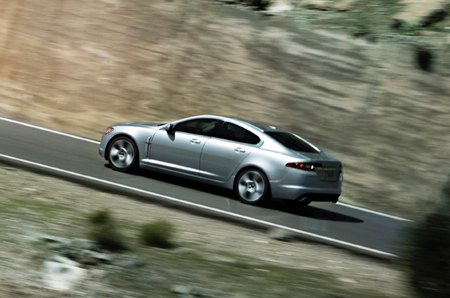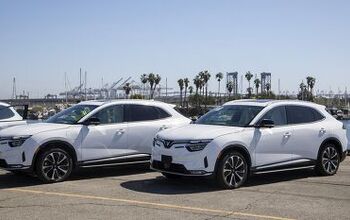Have Jaguar and Land Rover "Turned the Corner?"
Just-auto [sub] reports that Ford's Jaguar and Land Rover brands may have found their proverbial feet prior to sale. The eds say Landie will rack-up a $1.2bn profit in 2007, while Jag reduced its losses to around $100m "thanks to cost-cutting and concentrating on fewer, more profitable sales." Obviously, reducing losses isn't the same as making money, and Just-auto stays shtum on the number from which the $100m has been deducted. All we know is that the two brands combined lost FoMoCo $500m last year, apparently. Ford has refused to break-out the numbers for the various parts of its European misadventure since high-living former Bimmer exec Wolgang Rietzle formed the Premium Automotive Group at Dearborn's behest. So who's spinning the spin, leaking the info? Perhaps Tata Motors, who'd like the markets to think they're picking-up Landie and Jag for a $3b "bargain." Or Ford, to keep Tata on board. In any case, the clouds of European and American fuel economy standards hang heavy over both. Dead cat bounce?
More by Robert Farago


































Comments
Join the conversation
these numbers can be hugely affected by all sorts of accounting tricks, such as how much allocation of headquarters cost is made to the operation. Somebody is spinning something.
Most of Jaguar's and Land Rover's operations are and have been separate from FoMoCo since earlier this decade. Yes, the Jaguar brand is turning around. Ford bought a multi-billion dollar disaster. Dumbest decision ever. If Ford hadn't bought the Jaguar brand and then sunk $7 billion into it, it would have gone the way of Rover/MG. This year, the two marques will generate nearly $1 billion in profit combined. Yes, costs have been drastically reduced finally through employee separations and a complete overhaul of the management, design and engineering groups in the organization. Land Rover's revenues are soaring. Jaguar's are stagnant. However, Jaguar also finally has a product pipeline - something that Ford somehow couldn't put together for the first 15 years of ownership. This will undoubtedly boost Jaguar's revenues in short-term. There is no cooking of the books; no stretching the numbers to look good. Investors of Tata are genuinely concerned about especially Jaguar's health, so it's not a surprise to me that this type of story would be running on the eve of their sale. And at the point of this sale, I would say that Ford has, at the very least, given Jaguar a very good going away present - good diesel technology; the XK, XF and upcoming XJ; leaner operations; and higher quality than the brand has known in last 40 years. It's a shame that it took Ford over a decade to figure out how to get to this point. Jaguar and Land Rover would have been great brands in their portfolio. Tata potentially has a great deal on its hands.
Yeah it wouldn't surprise me at all if Jag and Land Rover have already turned the corner, Ford was and is unfortunately simply desparately trying to raise cash to keep the company going.